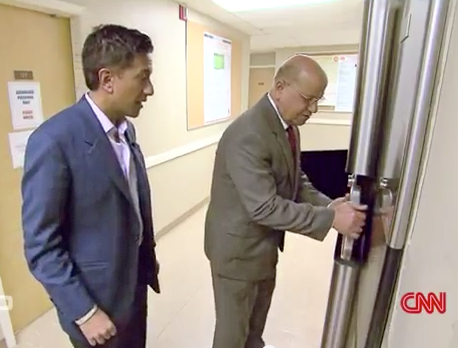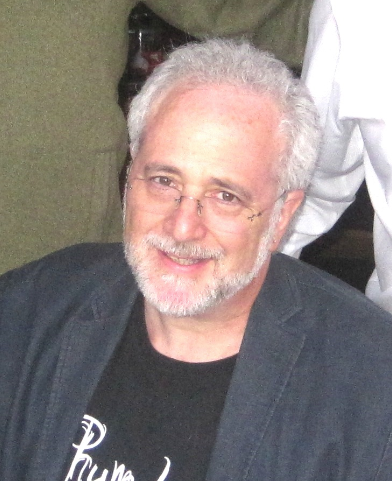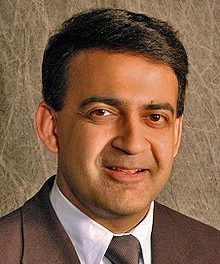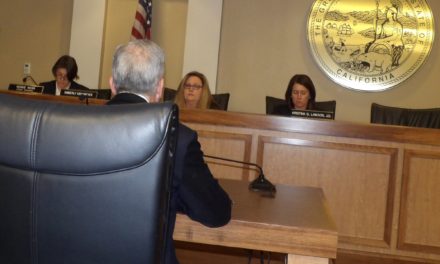July 27, 2018 It is now two years since the Drug Enforcement Administration said it would license more cultivators of cannabis for research purposes. Today, after accepting 26 applications from would-be suppliers, DEA has licensed none and has stopped taking applications. Mahmoud ElSohly, PhD, at the University of Mississippi, retains his monopoly status.
Supervising the stall is the Dixie Pixie, US Attorney General Jeff Sessions. “It’d be healthy to have  some more competition in the supply, but I’m sure we don’t need 26 new suppliers,” he twinkled.
some more competition in the supply, but I’m sure we don’t need 26 new suppliers,” he twinkled.
Lyle Craker, a professor at the University of Massachusetts at Amherst, has been applying for a DEA license to cultivate cannabis for research since 2000! Craker is among the 26 who haven’t heard back as we head into August 2018.
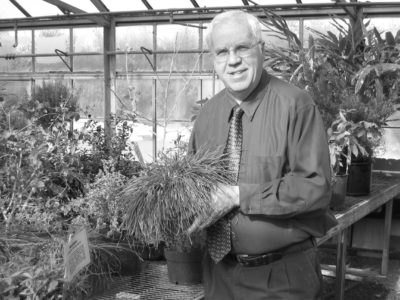 Here is the background on Craker’s bid from O’Shaughnessy’s Spring 2005 issue:
Here is the background on Craker’s bid from O’Shaughnessy’s Spring 2005 issue:
In 2000 an activist academic, Rick Doblin, PhD, encouraged botanist Lyle Craker, PhD, to apply for a DEA license to cultivate cannabis at UMass, Amherst. Doblin founded and runs a non-profit called the Multidisciplinary Association for Psychedelic Studies (MAPS). Craker is Director of the Laboratories for Natural Products, Medicinal and Aromatic Plants, Department of Plant and Soil Sciences at UMass.
Their application was filed in the spring of 2001. When at last the evaluation process began (after a year of various petty stalls), objections were raised by Mahmoud ElSohly, PhD, protecting his monopoly as the only DEA-licensed cannabis grower in the U.S. ElSohly supervises a l.5-acre garden at the University of Mississippi, from which he provides cannabis to the National Institute on Drug Abuse for use by researchers allowed to test it in clinical trials, and to patients in the federal “compassionate use” program begun by President Carter in the late ’70s (and closed to new patients by George H.W. Bush when the AIDS epidemic hit).
Patients who have compared ElSohly’s cannabis to cannabis grown for medical use in California say the latter is highly preferable —no sticks and seeds and much higher potency, meaning you can use less. Seriously ill people want the best medicine obtainable. The perceived inadequacy of NIDA’s cannabis has resulted in several FDA-approved clinical trials funded by California’s Center for Medicinal Cannabis Research failing to attract test subjects. Why smoke ElSohly’s when you can get “Blueberry?”
ElSohly claimed in a letter to the DEA that his Mississippi operation produced “enough cannabis, both qualitatively and quantitatively, to satisfy any possible needs of the research community.”
Doblin responded: “Unfortunately, that statement is false. For example, Chemic Labs requires marijuana with higher levels of THC and CBD than Dr. ElSohly can provide. Chemic Labs is conducting MAPS-sponsored laboratory research into the constituents of vapors produced when marijuana has been heated but not burned in a device known as a vaporizer. As you are probably aware, Chemic Labs has applied to DEA for a permit to import 10 grams of marijuana from the Dutch Office of Medicinal Cannabis of the SIMM 18 variety. This product contains 13.2% THC and 7.6% CBD, cannabinoid levels that NIDA does not have available.
“In a rather humorous indication of just how unaware NIDA and Dr. ElSohly are about what some members of the research community require, Dr. ElSohly acknowledged that he and NIDA didn’t consider it a significant issue that for over 20 years, low-potency material was provided that included seeds and sticks! At least Dr. ElSohly said that seeds and sticks have supposedly been eliminated from current production.
“Even assuming that NIDA could satisfy any possible needs of the research community, NIDA’s monopoly serves to obstruct privately-funded research. As long as NIDA and Dr. ElSohly retain a monopoly on the supply of marijuana, sponsors of privately-funded research are prevented from choosing the strain of marijuana they would prefer to research. Different strains have different ratios of the cannabinoids, THC and CBD, with NIDA offering low-potency, low-quality material.
“NIDA’s monopoly also makes privately-funded sponsors dependent on NIDA for price and availability. This is problematic since NIDA has twice refused to provide marijuana to protocols it didn’t like even though FDA approved the protocols. Furthermore, NIDA is limited by law to providing marijuana for research but cannot provide it for prescription use. As a result, NIDA’s monopoly forces sponsors to conduct research with a plant strain provided by NIDA that cannot be guaranteed to be available for prescription use.
“No rational private sponsor will invest the millions of dollars needed to conduct the research required by FDA with the limitations imposed by NIDA’s monopoly on supply. Dr. ElSohly also didn’t comment on how NIDA’s monopoly is inconsistent with US law requiring competition in the production of scheduled materials for use in research.”
Rejection (seen as progress)
AS OF THE SUMMER OF ‘04, the DEA still had not acted on the Craker application. MAPS and Valerie Corral of the Wo/man’s Alliance for Medical Marijuana filed a suit charging “unreasonable delay.” The DC Circuit Court of Appeals gave the DEA until Dec. 22 to justify the delay. Instead, on Dec. 10 the DEA issued an Order denying Craker’s application as “not consistent with the public interest.” The main reason:
“Current marijuana research has not progressed to Phase 2 of the clinical trials because current research must utilize smoked marijuana, which ultimately cannot be the permitted delivery system for any potential marijuana medication due to the deleterious effects and the difficulty of monitoring the efficaciousness of smoked marijuana.”
Doblin comments, “DEA is saying that since it can prejudge the outcome of FDA-approved research and knows that smoked marijuana ultimately cannot be permitted, denying us the opportunity to do the research in the first place isn’t against the public interest. What makes this all the more ludicrous is that the DEA lawyers don’t even understand the FDA drug review process enough to know that there are currently several Phase II studies with smoked marijuana underway and already approved by DEA!
“DEA focus on ‘smoked marijuana’ also ignores the whole concept of vaporization as an alternative non-smoking delivery system that MAPS has already studied. Vaporization uses the marijuana plant and heats it to less than the temperature of burning, sufficient to generate a steam that contains cannabinoids but without the products of combustion which are of health concern. For the last 17 months, DEA has been blocking our efforts to import 10 grams of marijuana from the Dutch, and HHS/NIDA has been blocking our efforts to purchase 10 grams of marijuana from NIDA, both requests seeking marijuana for further laboratory research with vaporizers.”
The DEA Order also asserted, “In accordance with the Single Convention (treaty), the Federal Government has to limit marijuana available for clinical research to one source.”
U.S. narco-diplomats promoted this treaty and bullied other countries into signing. It could be revised to reflect current understanding of the benignity of cannabis. Or, as is the Bush Administration’s wont, abrogated unilaterally. Moreover, as Doblin points out, “GW Pharmaceuticals, a private producer of marijuana in England, which is also a signatory to the same international treaties that the US has signed. The International Narcotic Control Board, which monitors compliance with the treaties, has never once objected to the British Home Office licensing of GW’s production facility, which took place more than six years ago in 1998.”
The DEA’s third basis for rejecting Craker’s application was: “FDA has not received any new drug application for the development of a prescription drug containing marijuana or a constituent of marijuana… DEA should not register another marijuana manufacturer at this time on such a speculative basis.”
Doblin explains the Catch-22: “We are saying that unless we can have access to our own independent source of marijuana, we can’t even do the research necessary to present an NDA to the FDA. DEA says that unless there is a need for marijuana for prescription use, it doesn’t see a need to make marijuana available for research. It is possible to get permission for research, the FDA is open to research. It’s the NIDA monopoly which is the key factor obstructing research.”
Craker and his backers are going to appeal the DEA rejection to an administrative law judge. Doblin defines the DEA’s rejection as progress towards the ultimate showdown, the hearing before the ALJ. He has asked an elite D.C. law firm to take the case pro bono. The ACLU is willing to play a supportive role (but not to provide the lead attorney).

